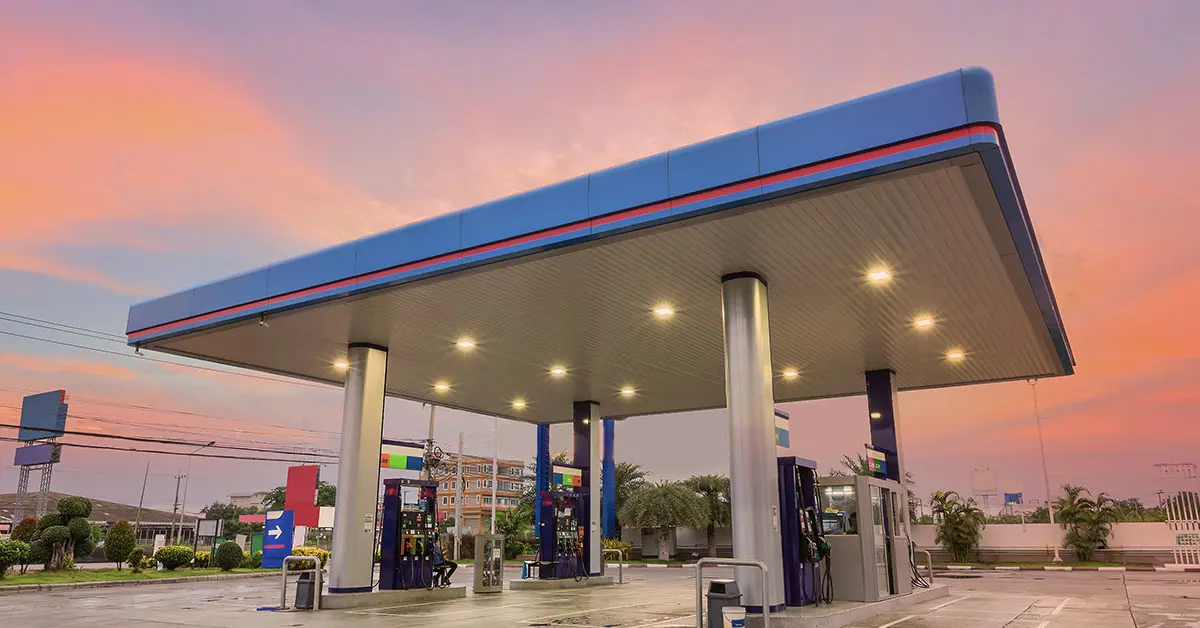The Economics of Fuel Marking: Boosting Revenue and Enhancing Market Competitiveness

Fuel marking plays a vital role in ensuring the integrity of the supply chain and combating fraud, it also has significant economic implications. In this article, we will delve into the economics of fuel marking, exploring its costs, benefits, and return on investment for governments.
We will examine how effective fuel integrity programs can lead to long-term savings, drive revenue growth and fostering a more competitive market environment.
The Cost of Fuel Marking Programs
Marking programs can be implemented and financed by oil marketing companies but in general it's the government that takes on the financial implications of implementing this type of solution.
Establishing and implementing a fuel integrity program has a cost which includes the initial investment of all activities before the start of the program (e.g., communication campaigns), the overall marking process and the field-testing inspections. Ongoing costs such as marker replenishment, maintenance of testing equipment and data monitoring and reporting platform, training programs for personnel, and program monitoring and evaluation must also be considered.
By partnering with a specialized company such as Cotecna, governments can access funding solution as well as expertise, technologies, and support throughout the process. Our company supports governments by ensuring that the markers meet regulatory standards and are compatible with the fuel types prevalent in the market and by providing comprehensive services, including program management, regulatory compliance, capacity building, and data management.
This long-term investment ensures the sustained effectiveness and success of the fuel marking program. By partnering with Cotecna, governments can benefit from an optimized balance between costs and benefits, providing governments with a cost-effective and efficient solution for implementing a robust and impactful fuel integrity program.
While there are costs associated with setting up and implementing a fuel integrity program, governments must weigh them against the benefits. Effective fuel integrity programs help combat fuel tax evasion, protect government revenue, improve fuel quality, and promote fair competition within the market. The economic benefits and increased revenue from reduced tax evasion always outweigh the overall investment.
The Benefits for Governments
Fuel marking programs provide several economic benefits to governments, making them a valuable investment.
- One of the primary economic advantages is the great potential for increased tax revenues. By implementing robust fuel marking policies, governments can effectively combat fuel tax evasion and fraud, ensuring that all taxable fuel products are accurately accounted for and taxed accordingly. This leads to a significant boost in tax revenues, which can be channeled towards public infrastructure development, social programs, and other government initiatives.
- In addition, by incorporating unique and easily detectable markers into fuel products, governments can effectively trace the origin and authenticity of fuels, making it difficult for illicit actors to adulterate, dilute, or smuggle fuels without detection. This helps governments curtail fuel tax evasion and fraud, ensuring that all fuel transactions are legitimate and tax obligations are met. The reduction in illicit activities leads to increased tax compliance and revenue collection, strengthening the financial position of governments
- Accurate data on fuel consumption and demand enables governments to make informed decisions regarding fuel taxation, pricing, and energy policies. It helps optimize resource allocation, ensuring that resources are directed towards areas of high demand and strategic importance. As a result, governments can achieve better fiscal management and allocate resources more effectively, leading to improved economic performance.
Through a well-managed fuel integrity program, governments can quickly increase tax revenues, reduce fuel tax evasion and fraud, enhance resource allocation, thus significantly strengthen their financial position and effectively manage public funds.
Return on Investment
Analyzing the return on investment (ROI) of fuel integrity programs is logical to understanding their economic viability. To calculate the ROI of their program, governments analyze the total program costs, additional revenue generation, cost savings, and broader economic impact. There are several other factors that influence ROI, including enforcement capabilities, and market conditions.
Taking into account all these factors help determine the program's effectiveness and make informed decisions about the allocation of resources for future investments.
One important step is to also evaluate the additional revenue generated as a result of the fuel integrity program. This can come from various sources, such as increased tax collections due to reduced tax evasion and fraud, penalties imposed on violators, and improved market competitiveness leading to increased market share for legitimate fuel companies. Through a thorough analysis of their additional revenue, governments can assess the direct financial impact of the program.
By continuously monitoring and refining their fuel integrity programs, governments can then maximize their ROI and ensure long-term economic benefits for all stakeholders involved.
Improved Market Competitiveness
Fuel integrity programs can significantly enhance market competitiveness for both governments and fuel companies. By creating a level playing field, fuel integrity programs foster a fair and competitive environment within the fuel industry. Legitimate fuel companies are encouraged to invest in quality control measures and adhere to regulations, knowing that their efforts will be protected and recognized. This instills confidence in the market and promotes healthy competition.
Fuel marking programs act as a strong deterrent against illicit activities by making it easier to identify and apprehend those engaged in illegal practices. The use of unique markers enables authorities to detect illicitly traded or adulterated fuels, allowing for swift action against violators. This discourages illicit actors from engaging in fraudulent activities, protecting the interests of legitimate fuel companies and maintaining a level playing field.
Investors are more likely to enter markets where the risks of fuel tax evasion, fraud, and product adulteration are minimized. By implementing effective fuel integrity programs, governments showcase their dedication to maintaining market integrity, protecting investments, and supporting legitimate fuel traders. This attracts capital, stimulates market growth, and enhances overall market competitiveness.
A transparent and well-regulated fuel market creates a conducive environment for business operations. Oil Marketing Companies can focus on product quality and innovation, knowing that their efforts will be rewarded in a fair and competitive market. Consumers benefit from a wide range of reliable fuel choices, confident in the knowledge that the fuels they purchase meet established standards.
The economics of fuel marking extend beyond the initial costs involved. It is evident that effective fuel integrity programs bring about long-term savings, increased revenue, and improved market competitiveness for governments, fuel companies, and consumers. By curbing fuel tax evasion, ensuring fuel quality, and promoting fair competition, fuel marking fosters economic growth, protects consumer interests, and supports sustainable energy practices.
Our fuel integrity programs provide an effective response to theft, smuggling or adulteration of petroleum products. Thanks to an advanced technology we help governments and oil companies protect their revenues, consumers and the environment. For more insights about fuel marking read our latest article or contact us at governments@cotecna.com
Latest News

08.04.2025
Innovation and Precision: How Complex Diagnostics Are Transforming Plant Health in the Field
Harnessing Technology for Smarter, More Sustainable Crop Protection.

03.04.2025
Cotecna COO Romain PETIT’s Visit to China
From March 24 to April 1, 2025, Cotecna Group Chief Operating Officer Romain PETIT visited China for a week-long trip.

